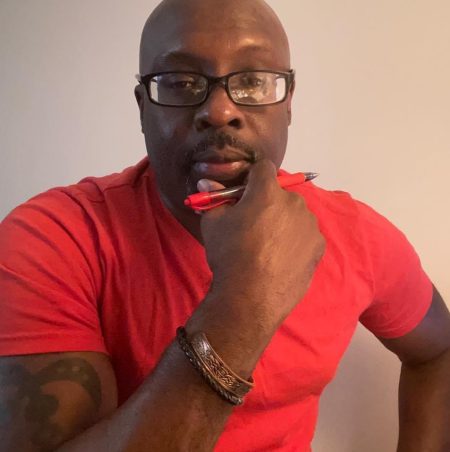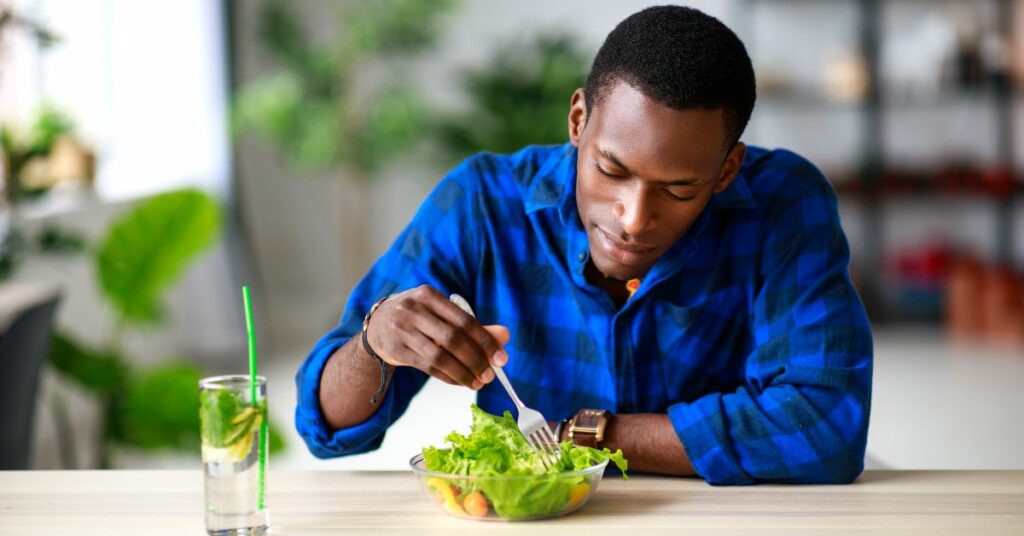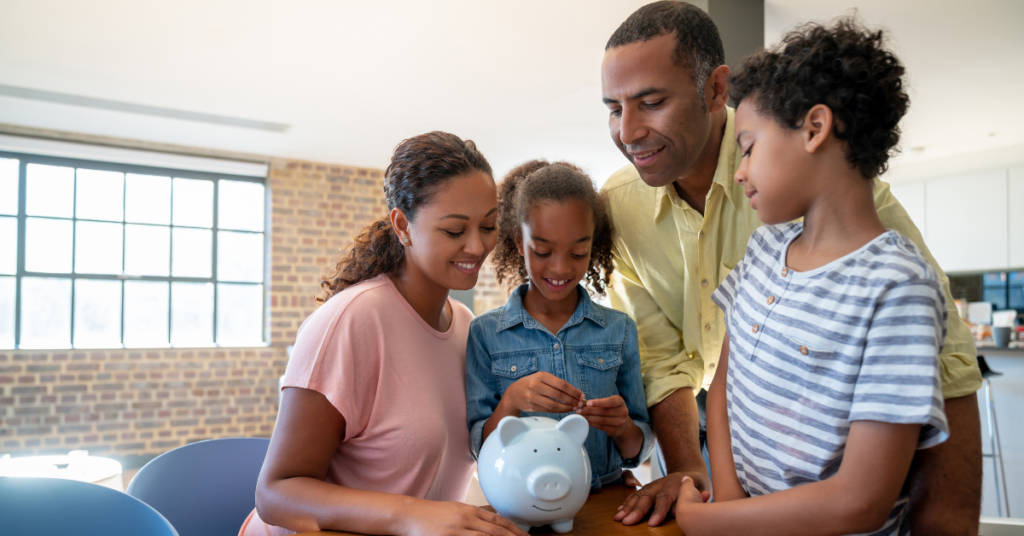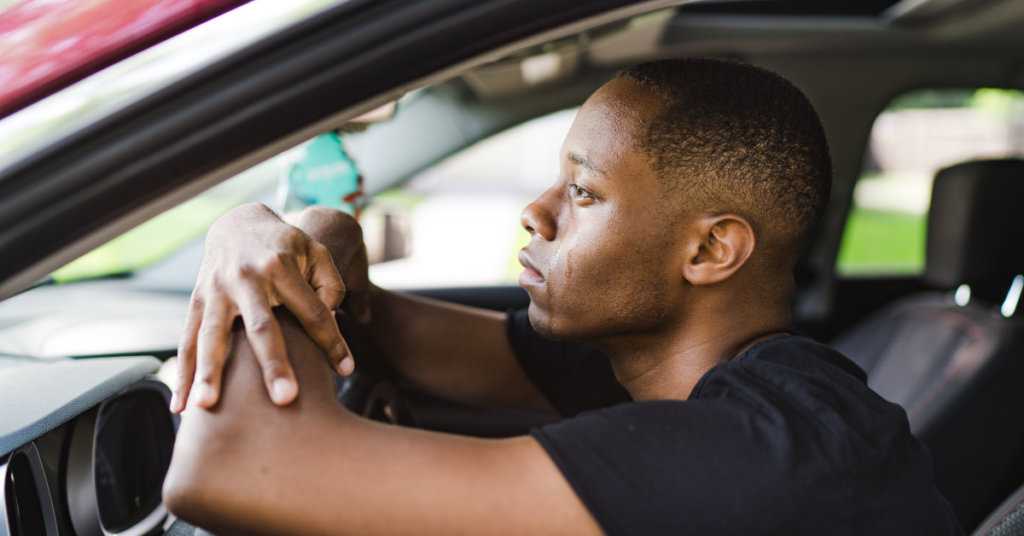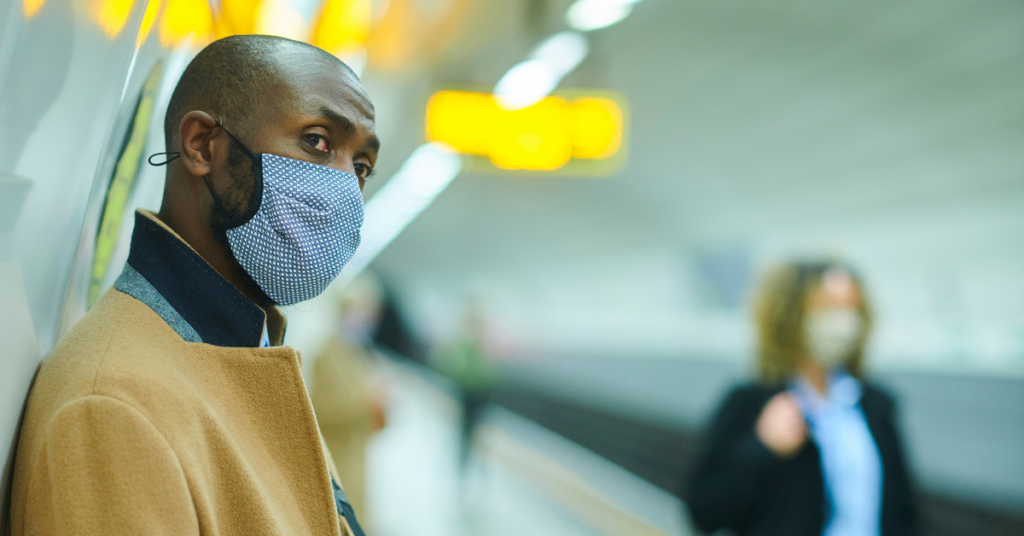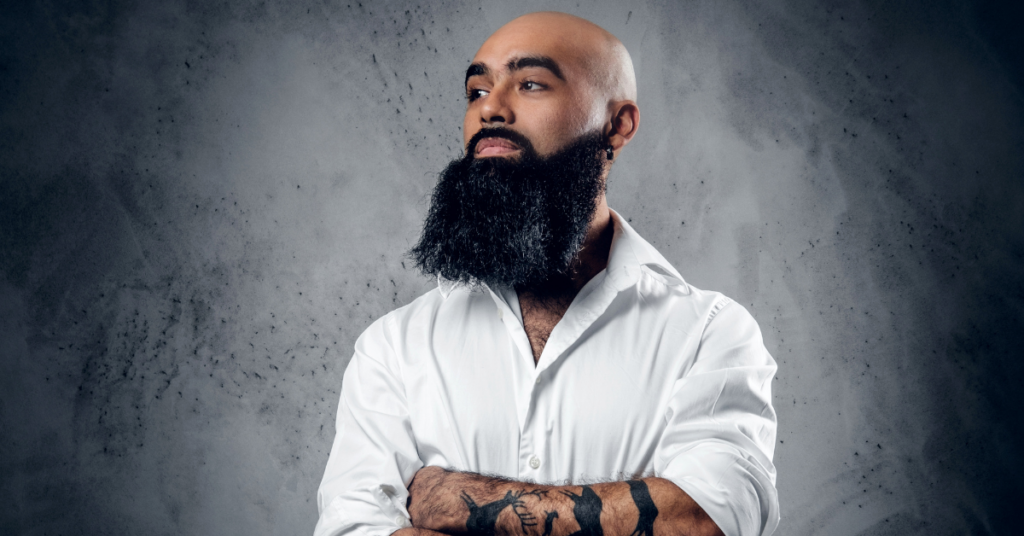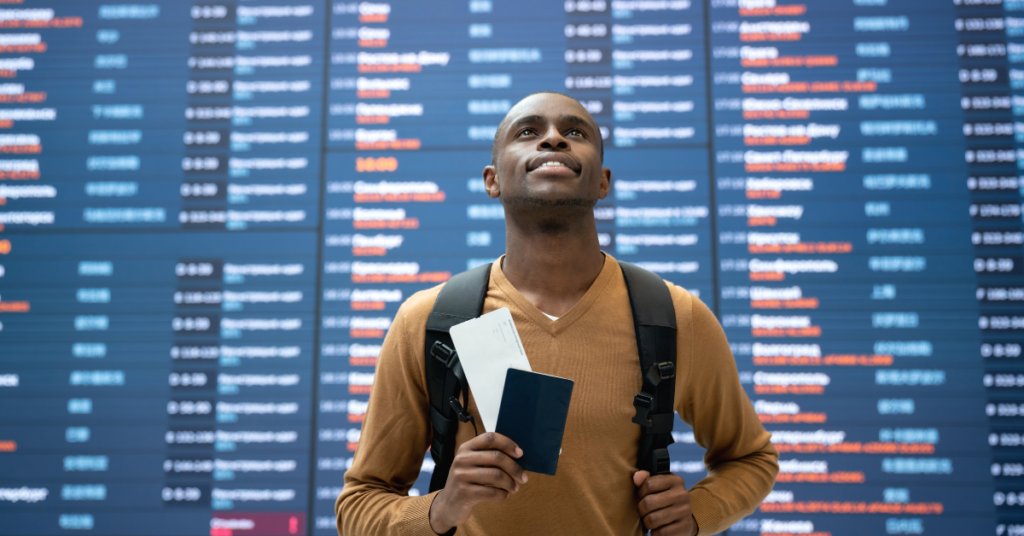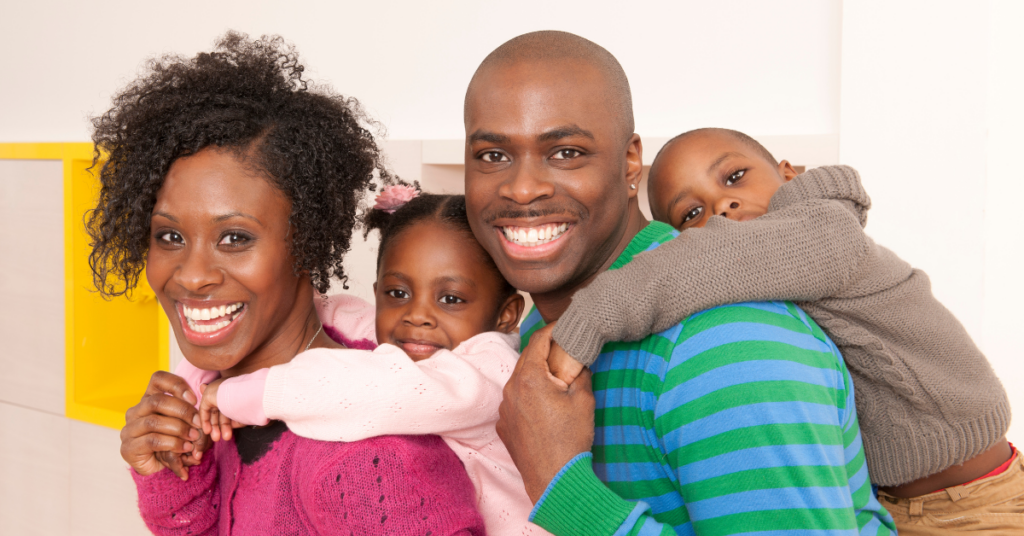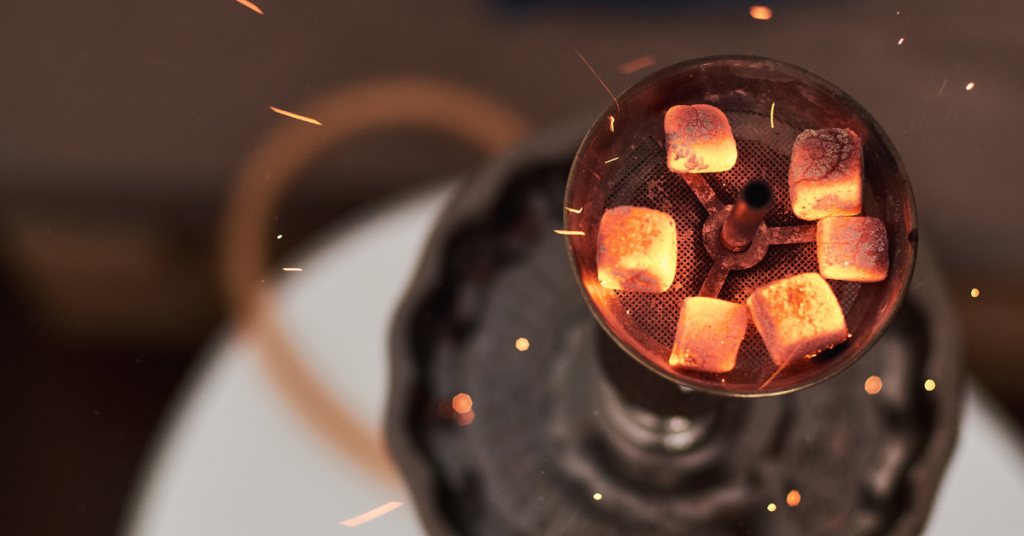When you think you’re about to die, your failures invariably come into focus, like unmet goals and lost connections. What looms largest, however, is all that you are about to lose.
After testing positive for Covid-19 in mid-September, I thought the family I recently gained through marriage would be lost.
Though vaccinated, I was fearful of the creeping, insidious nature of the virus, where you can go from feeling normal to languishing in a hospital alone and dying in a matter of days, a familiar outcome for many.
Then, a day after my positive Covid result, when my thoughts were turning to the worst possible outcome, I was granted a gift. It was a small moment that helped me look beyond a potential tragedy.
It changed how I looked at my life, which, until that moment, I viewed as insignificant in the grand scheme – dust on the bottom of a broom. My failures as a man, husband, father, and friend would not matter quite as much afterward.
“Though vaccinated, I was fearful of the creeping insidious nature of the virus, where you can go from feeling normal to languishing in a hospital alone and dying in a matter of days…”
That moment occurred when my wife cracked open the door to our bedroom wearing a face mask that couldn’t conceal her eyes, which were earthen, heavy, and wet. She was making a food run to a spot just minutes from our home on the Southside of Chicago. When she asked for my order, I answered her.
“A Vesuvio Italian Classic,” she said, repeating my order back to me in a voice that was low and wavering.
I could sense her fear in those small words. The gaping hurt we shared felt as wide and breathless as the avenues that criss crossed our city.
Refuge would arrive as a breaded chicken cutlet sandwich so large it can only be eaten with two hands. I would soon discover through prayer, recollection, and recognition that our moment offered a sustenance more ample.
What the Virus Takes from You
Dying from Covid-19 is as harrowing and miserable as you might imagine. Few viruses have the ability to dismantle life quite like it. Over 800,000 in the U.S. and 5.3 million around the world have died from it as of this writing.
Medical experts are also predicting a winter surge of infections thanks to the Omicron variant.
As much as we want things to get back to normal, the pandemic won’t allow it. In fact, scientists predict that the virus will be with us for a long time.
Since Covid-19 hit our shores, the majority of its victims have died in hospitals and long-term care facilities isolated and alone. Often their only human contact is with healthcare workers dressed in personal protective equipment resembling spaceship gear. Their final days, weeks, or months are rife with misery as the virus withers the lungs.
As this Vox article points out, when people check into the emergency room for Covid, it’s because they have difficulty breathing. Patients afflicted with the virus feel as if they are sucking air through a “very narrow straw,” a sensation that can last hours, days, or even weeks.
As their lungs continue to deteriorate, they need to breathe faster and faster to get enough oxygen, panicking as they take each breath.
According to one doctor in the article, patients have complained that because of Covid-19, it feels as if their lungs are on fire or that a thousand bees are stinging them inside their chest. Some feel like they are “trying to breathe through muck” due to the thick secretions in their lungs. Others may feel as if they are being smothered.
If they are admitted to a medium or intensive care unit (ICU), they can be isolated from family and friends. In ICU, patients can develop delirium where confusion, disorientation, and incoherence can suddenly overcome them, exacerbating their symptoms and heightening their chances of death – if they haven’t already wished for it themselves.
According to that same report, multiple doctors cite yet another tragic feature of Covid-19: the wish to die.
“You hear the patients say, ‘I just want to die because this is so excruciating,’” said one physician. “That’s what this virus does.”
When someone in this situation passes, it will likely be without having received so much as a meaningful word or kiss from a loved one. And if contact is granted, last words are often delivered via video chat through an app like FaceTime or Messenger.
What I Finally Gained
Spending that moment with my wife over a sandwich order, something that would be so spare and mundane at any other time, meant so much more because it served as a reminder of one of my best decisions – to marry her and become a step dad to her twin teenagers.
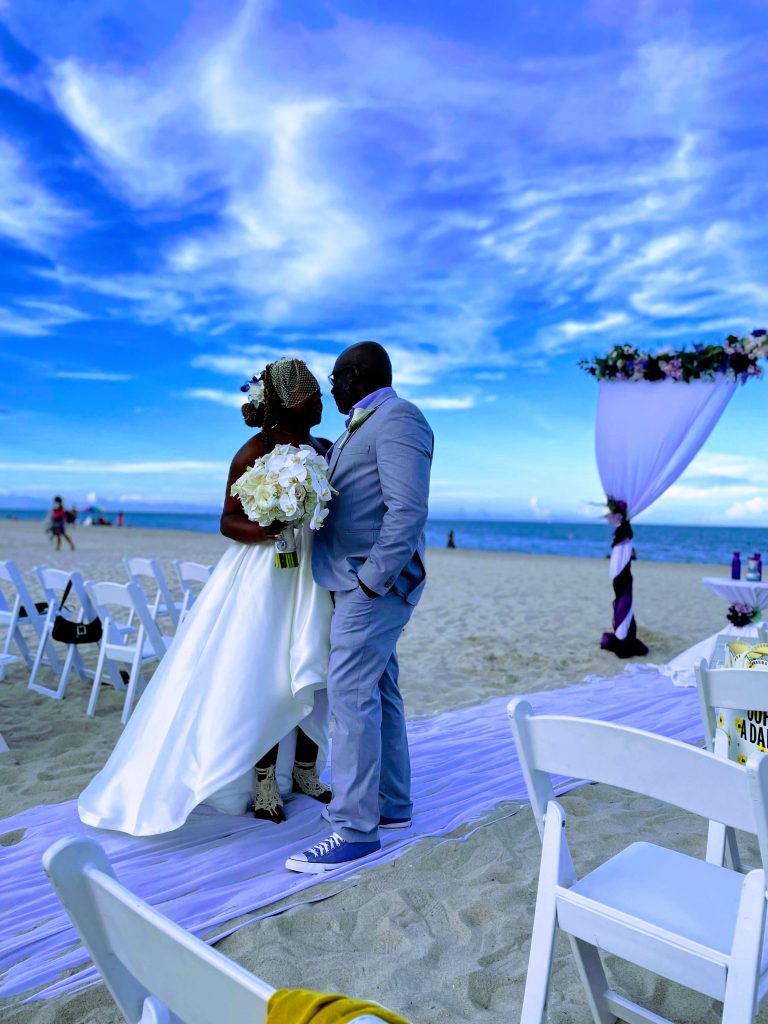
That moment provided a waterfall of memories because we jammed so much life in the three months between our nuptials and that Covid-19 result. Our honeymoon was a 1,300-mile drive from Palm Beach Gardens, Florida to Chicago where we stopped at Gainesville, Florida, Atlanta, Nashville, Louisville, and Indianapolis before we made it home.
At home, we went to jazz clubs, ate at some of the best Yelp-reviewed restaurants, and spent days walking along Lake Michigan. There were ordinary nights where we would just lay beside each other, grateful that neither of us would have to leave to fly back to our respective cities as we had in the past.
I thought about the small gestures, like how on most mornings I would enter the kitchen to find a washed mug under the Keurig machine because she knows that I like my coffee first thing.
In the immediate aftermath of that Covid result, I thought about all of that and everything I was about to lose over and above my failures. What stood out more was that through our bond, I finally felt a sense of permanence, which eluded me most of my adult life.
Aside from spending the first 16 years of my life in Brooklyn, New York, I would spend the next 30 living in different cities, always leaving one place for the next in search of a better opportunity or adventure, fleeing when the present location felt hostile or untenable.
Through marriage and the establishment of family, I was about to experience what writer Wendell Berry described as a deepening of my relationship to a place and through that feeling, contentment.
“This peace is partly in being free of the suspicion that pursued me for most of my life,” Berry once wrote, “[that] no matter where I was, that there was perhaps another place I should be, or would be happier or better in…”
I was better here in Chicago with my family, in a place that transcended geography – “home.”.
Three months later, after experiencing mild symptoms and ultimately testing negative for Covid-19, my words fail to accurately label this feeling.
What I can say is that this feels more concrete and expansive than contentment. While it is certainly love, I do feel as if I am on firm ground, something I have prayed for a long time.
Whatever this thing is, it propels me, lending rhythm to my walk and a lilt to my voice. For an only child like me – disconnected, introverted, distant, and misunderstood – I discovered a place of rest.
What I’m thankful for this holiday season is that finally I can appreciate the meaning behind that one small moment, that my life isn’t so insignificant after all.
God granted me a second chance to fully experience two of my most meaningful accomplishments – family and connectedness.
Finally.
Hopefully.


